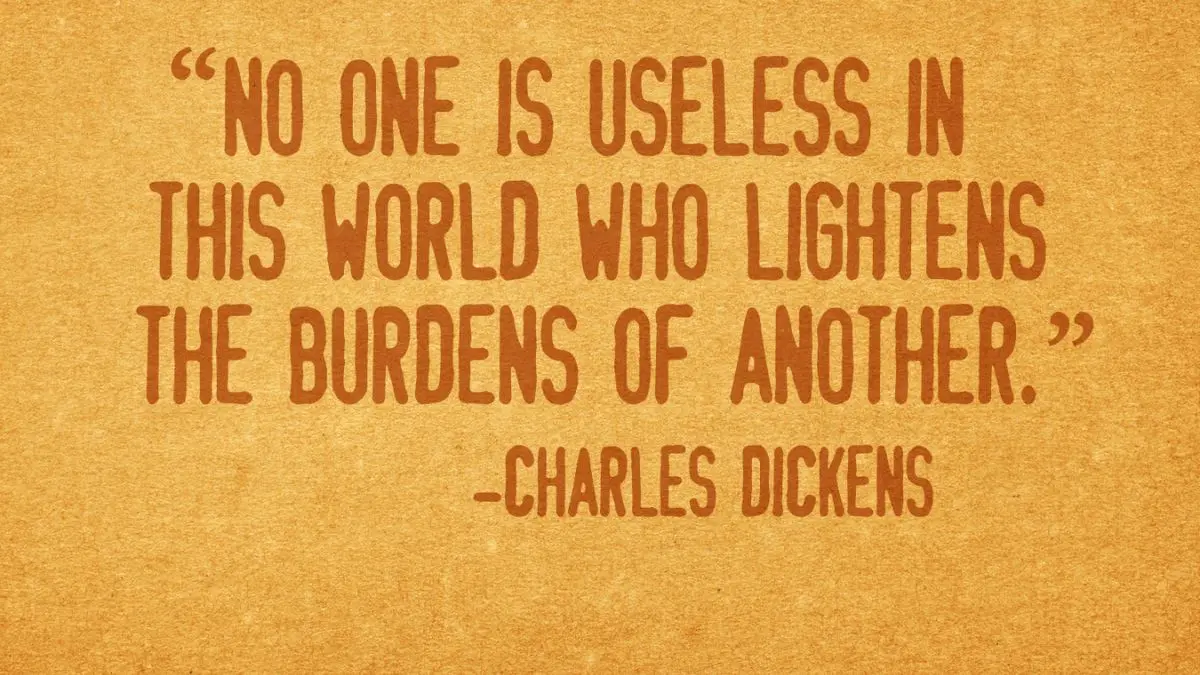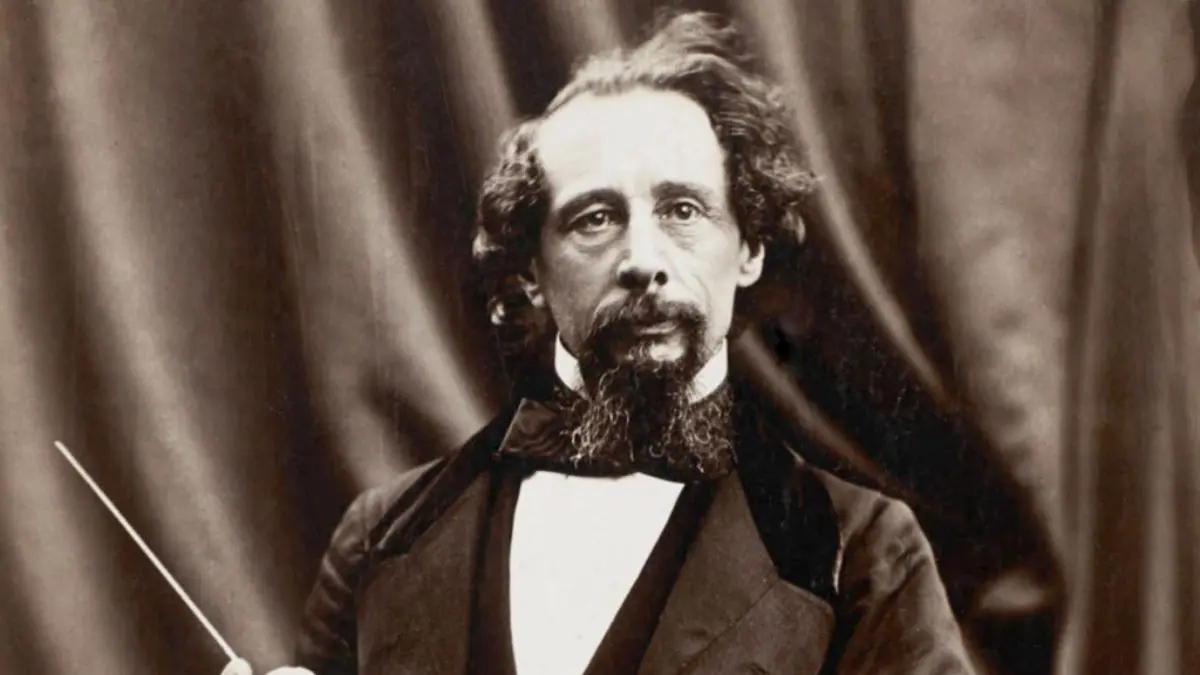Charles Dickens, one of the greatest novelists of the Victorian era, has left an indelible mark on literature with his poignant and insightful observations about human nature and society. His quotes, drawn from his extensive body of work, offer wisdom and reflection on various aspects of life. Here, we delve into 10 Best Charles Dickens Quotes, providing explanations to highlight their timeless relevance.
10 Best Charles Dickens Quotes and Their Explanations
“It was the best of times, it was the worst of times…”
This famous opening line from “A Tale of Two Cities” encapsulates the dual nature of the era Dickens portrays. The quote reflects the paradoxical nature of life, where joy and sorrow, hope and despair, coexist. Dickens highlights the extremes of the French Revolution, but the sentiment resonates universally, reminding us that life is often a mix of contrasting experiences.
By juxtaposing the best and worst, Dickens emphasizes the complexities of human existence. This duality can be seen in modern times as well, where advancements and regressions often occur simultaneously. The quote encourages readers to appreciate the nuances of their circumstances and find balance amidst chaos.
“No one is useless in this world who lightens the burdens of another.”
In “Our Mutual Friend,” Dickens conveys a powerful message about the value of kindness and compassion. This quote underscores the importance of helping others, suggesting that even the smallest act of kindness can make a significant impact. It reflects Dickens’ belief in social responsibility and the moral duty to support those in need.
This idea is particularly relevant in today’s fast-paced world, where empathy and altruism are sometimes overshadowed by self-interest. Dickens reminds us that our worth is often measured by the positive effects we have on others’ lives, reinforcing the timeless value of benevolence.

“Have a heart that never hardens, and a temper that never tires, and a touch that never hurts.”
This quote from “Hard Times” speaks to the importance of maintaining compassion, patience, and gentleness in our interactions with others. Dickens advocates for a resilient yet kind-hearted approach to life, encouraging us to remain empathetic and understanding even in difficult situations.
In a world where stress and adversity can easily lead to cynicism and harshness, Dickens’ words serve as a reminder to nurture our emotional well-being and treat others with kindness. By cultivating these qualities, we contribute to a more compassionate and harmonious society.
“The pain of parting is nothing to the joy of meeting again.”
In “Nicholas Nickleby,” Dickens captures the bittersweet nature of farewells and reunions. This quote reflects the cyclical nature of relationships, where separation is often followed by joyous reunions. It highlights the enduring bonds we share with loved ones, suggesting that temporary pain is overshadowed by the happiness of reuniting.
This sentiment resonates deeply with those who experience long-distance relationships or frequent goodbyes. Dickens reminds us that while parting can be painful, it also strengthens our appreciation for the moments we share with those we care about.
“There is nothing in the world so irresistibly contagious as laughter and good humor.”
In “A Christmas Carol,” Dickens emphasizes the power of positivity and its ability to spread joy. This quote suggests that laughter and good humor are infectious, capable of lifting spirits and fostering a sense of camaraderie. Dickens highlights the transformative effect of a positive attitude on individuals and communities.
In today’s world, where negativity can often dominate, Dickens’ words encourage us to embrace and share positivity. Laughter and good humor not only enhance our own well-being but also create a ripple effect, spreading happiness to those around us.

“A day wasted on others is not wasted on one’s self.”
This quote from “A Tale of Two Cities” underscores the fulfillment that comes from helping others. Dickens suggests that time spent in service to others is valuable and enriching, contributing to our own sense of purpose and satisfaction. It reflects his belief in the interconnectedness of humanity and the rewards of altruism.
In an era where self-care is often emphasized, Dickens reminds us that selflessness and service can also be deeply nourishing. By dedicating time to others, we find meaning and fulfillment, enhancing our own lives in the process.
“Reflect upon your present blessings, of which every man has many; not on your past misfortunes, of which all men have some.”
In “Sketches by Boz,” Dickens encourages gratitude and positive reflection. This quote advises focusing on current blessings rather than dwelling on past hardships. Dickens advocates for a mindset of appreciation, recognizing the abundance of good in our lives despite any adversities we may have faced.
Gratitude has been shown to improve mental health and overall well-being. Dickens’ words remind us to cultivate an attitude of thankfulness, which can help us maintain a positive outlook and find contentment in our daily lives.
“We need never be ashamed of our tears.”
In “Great Expectations,” Dickens validates the expression of emotions, particularly tears. This quote acknowledges the natural and healthy role of crying in coping with pain and sorrow. Dickens challenges the stigma often associated with vulnerability, advocating for the acceptance of emotional expression.
In a culture that sometimes promotes stoicism and emotional restraint, Dickens’ words offer a comforting reminder that it’s okay to cry. Tears are a natural response to life’s challenges and an important part of emotional healing and resilience.

“The men who learn endurance, are they who call the whole world, brother.”
This quote from “Barnaby Rudge” highlights the value of endurance and resilience. Dickens suggests that those who endure hardships develop a sense of kinship and solidarity with others. It reflects his belief in the unifying power of shared experiences and the strength that comes from overcoming adversity.
In today’s world, where challenges are ubiquitous, Dickens’ words inspire us to persevere and find common ground with others. Endurance not only builds personal strength but also fosters a sense of community and mutual support.
“There are dark shadows on the earth, but its lights are stronger in the contrast.”
In “The Pickwick Papers,” Dickens acknowledges the presence of darkness and adversity in the world. However, he emphasizes that the light—representing hope, goodness, and positivity—shines even brighter in contrast. This quote suggests that challenges can highlight the resilience and strength of the human spirit.
Dickens’ perspective encourages us to find hope and inspiration even in difficult times. By recognizing the contrast between darkness and light, we can appreciate the moments of joy and triumph that emerge from adversity, reinforcing our optimism and perseverance.
Also Read: 20 Most Romantic Quotes from Literature (books, poetry and plays)









